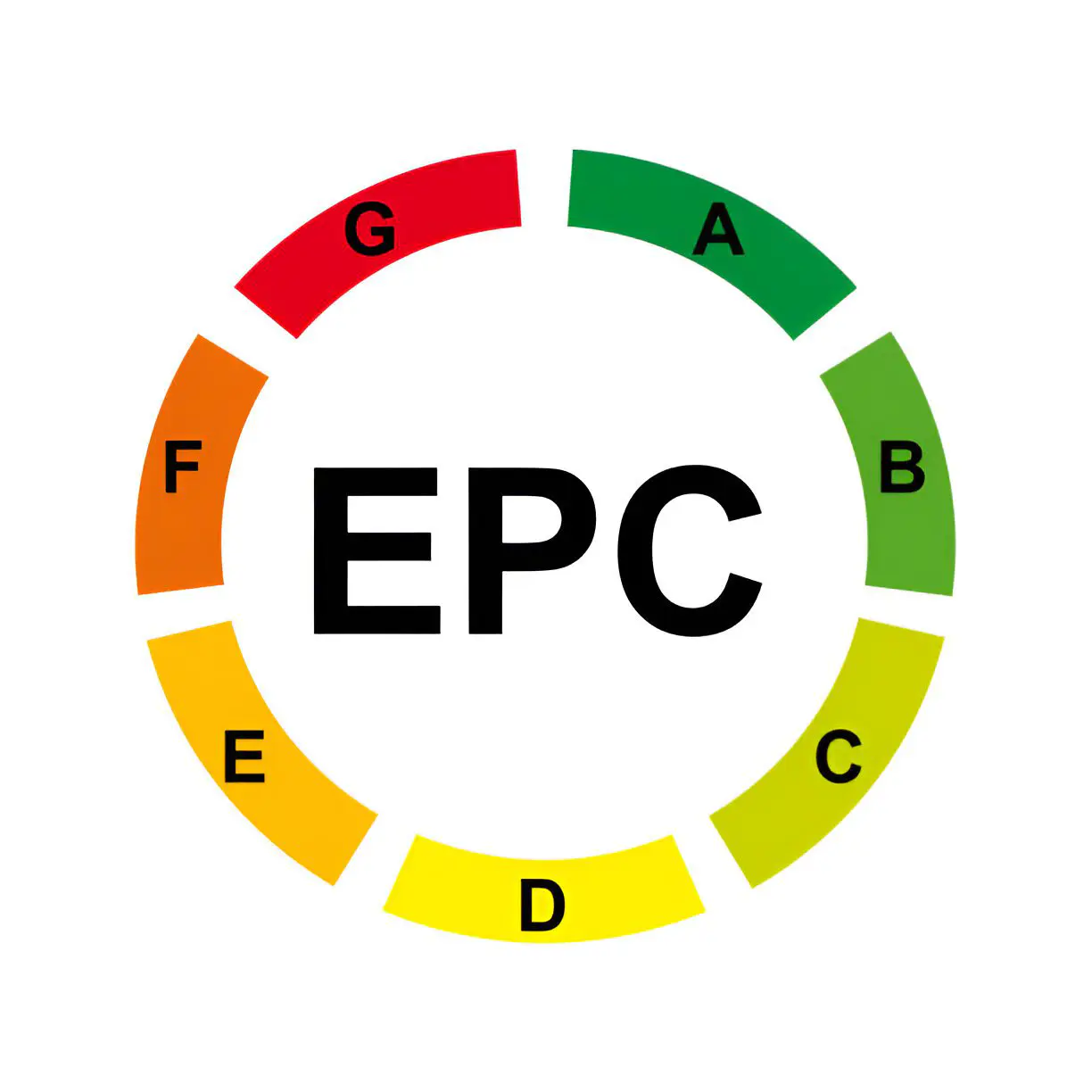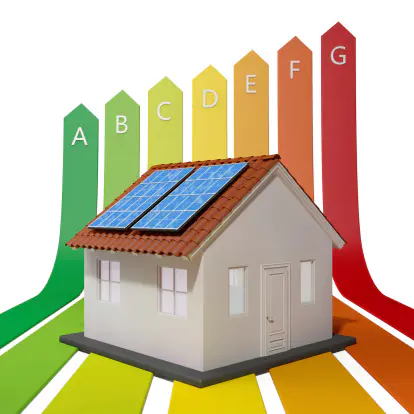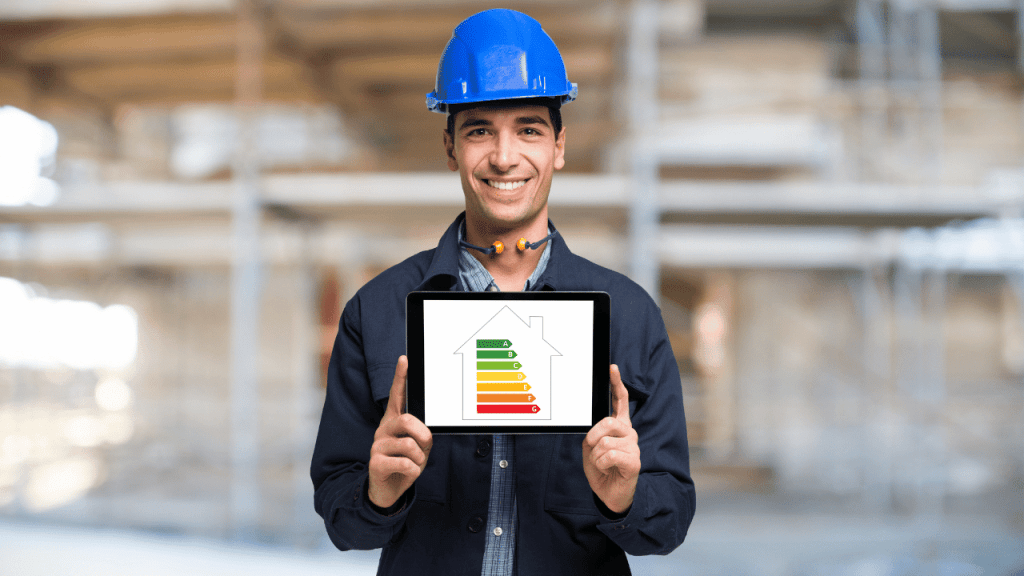As you look into buying or renting property in the UK, you’ve likely encountered Energy Performance Certificate (EPC) ratings, but have you ever paused to truly understand what these letters and numbers mean for you? Spanning from ‘A’ for the most efficient homes to ‘G’ for the least, these ratings not only reflect a property’s energy efficiency but also hint at potential costs of future energy bills and necessary upgrades. You might be wondering how this affects your pocket and the planet. Let’s explore how a deeper comprehension of these ratings could influence your next property decision. Let’s understand Decoding Energy Performance Certificate EPC Ratings in the UK.
Understanding EPC Ratings and Categories
Energy Performance Certificates (EPCs) categorize the energy efficiency of buildings in the UK, ranging from ‘A’ (most efficient) to ‘G’ (least efficient). Each category on this scale is crucial because it directly reflects the operational costs and environmental impact of a property.

As you delve deeper into understanding EPC categories, it’s imperative to grasp the methodology behind the ratings. These ratings aren’t arbitrary; they’re calculated based on factors such as insulation quality, heating systems, and overall energy consumption.
An ‘A’ rating signifies a highly energy-efficient building, with minimal heat loss and optimized energy consumption. Buildings with ‘B’ or ‘C’ ratings are also efficient, but there are usually small improvements that could elevate them to an ‘A’. Conversely, properties rated ‘D’ through ‘G’ increasingly consume more energy, leading to higher utility bills and a larger carbon footprint.
Understanding the nuances of these categories and the significance of each rating is essential. It’s not just about knowing where a building stands today but recognizing potential improvements that can enhance its efficiency.
This knowledge isn’t just academic; it’s a practical tool for making informed decisions about energy consumption and sustainability efforts.
The Importance of EPC for Property Owners
As a property owner, understanding the significance of your building’s Energy Performance Certificate (EPC) rating is crucial. This rating not only impacts your property’s marketability but also its compliance with regulatory standards.
EPC compliance isn’t merely about adhering to legal requirements; it’s a strategic move toward positioning your property as an environmentally responsible investment.
Delving deeper, an optimal EPC rating can significantly enhance the appeal of your property to potential tenants and buyers who are increasingly eco-conscious. By investing in sustainable upgrades that improve your EPC rating, you’re not just complying with the law—you’re making a savvy, sustainable investment. These enhancements can range from simple fixes like better insulation or more efficient heating systems to more advanced solutions such as solar panels.
Moreover, maintaining a high EPC rating ensures you’re ahead in the sustainability curve, reducing energy costs in the long run and minimizing your property’s carbon footprint.
This proactive approach not only aligns with global trends towards sustainability but also secures your investment’s future value and appeal.
How EPCs Influence Real Estate Values
Understanding the influence of Energy Performance Certificates (EPCs) on real estate values is essential for making informed property investment decisions. An EPC’s rating, which assesses a property’s energy efficiency, directly impacts its market attractiveness and, consequently, its value.
Properties with higher ratings typically command higher prices and are quicker to sell. This is because potential buyers are increasingly recognizing the long-term cost benefits of energy-efficient homes.
From an investment perspective, you should consider the EPC market impact when evaluating properties. Homes with poor ratings may offer initial cost savings but could require significant energy efficiency investments to enhance their marketability.
Conversely, investing in a high-rated property can lead to greater resale value and appeal in an environmentally conscious market.
Moreover, legislative trends are increasingly favoring energy-efficient housing, pushing the real estate market toward a preference for higher EPC ratings. This regulatory environment makes it imperative for you to understand how these certificates contribute to setting real estate values.
By prioritizing properties with better EPC ratings, you’re not only investing in immediate property value but also in future market relevance and sustainability.
Thus, integrating EPC considerations into your investment strategy is crucial for maximizing returns.
Tips to Improve Your EPC Rating
How can you boost your property’s Energy Performance Certificate (EPC) rating? Achieving a higher EPC rating not only enhances your property’s market value but also reduces energy costs significantly. Let’s delve into effective strategies that can lead to substantial improvements in your EPC rating.

Firstly, consider insulation upgrades. Enhancing your property’s insulation in the loft, walls, and floors minimizes heat loss, which is crucial for improving energy efficiency. This step alone can shift your EPC rating considerably.
Another vital approach involves the installation of renewable energy sources. Solar panels or biomass heating systems can drastically cut down on carbon emissions and are highly favored in EPC assessments.
Moreover, replacing old appliances with energy-efficient models is another effective method. These appliances use less power and perform more efficiently, contributing positively to your EPC score.
Behavior changes also play a critical role. Simple actions like turning off lights when not in use or lowering your thermostat can have a cumulative effect.
Here’s a quick overview to help you focus your efforts:
| Strategy | Expected Impact | Implementation Complexity |
|---|---|---|
| Insulation Upgrades | High | Moderate |
| Renewable Installations | Very High | High |
| Energy Efficient Appliances | Moderate | Low |
Implementing these changes requires a blend of investment in technology and modifications in daily habits, but the payoff in energy savings and property value can be significant.
Future Trends in Energy Efficiency Regulations
Energy efficiency regulations across the UK are set to become stricter in the coming years, pushing homeowners and builders to adopt more sustainable practices.
As you navigate these changes, you’ll need to understand how smart technology and renewable energy integration are becoming not just optional, but essential. The government is ramping up incentives for those who invest in these technologies, aiming to boost consumer awareness and market demand.

You’ll face compliance challenges, certainly. The regulations will demand more frequent energy audits, ensuring that your property meets or exceeds the new benchmarks. This isn’t just about achieving a better EPC rating; it’s about contributing to a broader environmental impact.
Retrofit strategies will be crucial for older buildings. Adapting existing structures to comply with new standards can be daunting, but it’s necessary. You’ll find that investing in retrofitting not only increases property value but also reduces energy costs in the long run.
Stay informed and proactive. The landscape of energy efficiency is evolving rapidly, driven by a need to reduce carbon footprints and enhance sustainability.
Understanding these trends will position you to make informed decisions, ensuring your property isn’t only compliant but also competitive in a greener future.
Conclusion
As a property owner, you’ve learned that improving your EPC rating not only boosts your building’s market value but also its appeal to eco-conscious tenants. By investing in energy-efficient upgrades, you can significantly reduce operational costs and enhance sustainability. Stay ahead by monitoring evolving regulations in energy efficiency. Remember, a higher EPC rating doesn’t just mean lower energy bills—it’s a proactive step toward future-proofing your property in an increasingly eco-aware market.









